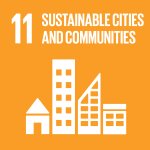
March 2023 - As one of the three countries most affected by extreme weather events worldwide, Haiti has been working hard to formulate an ambitious, inclusive and systematic approach to climate adaptation. Last month, the Small Island Developing State submitted its National Adaptation Plan (NAP) to the UNFCCC, thus marking the culmination of an adaptation planning journey of several years.
This was no small feat, considering the country has been dealing with the devastating aftermath of a 7.2 magnitude earthquake in parallel since 2021 as well as regular civil unrests, in addition to COVID 19. During this period, Haiti has been working closely with partners to identify their climate adaptation priorities, resource needs and vulnerabilities.
The frequency of extreme weather events experienced in Haiti, such as hurricanes, storms and floods are projected to increase as our climate continues to change. Through the formulation of Haiti’s NAP, the country identified four priority sectors that need to urgently adapt to climate change over the next decade: agriculture, water, health and infrastructure.
The country plans to build more climate-resilient agri-food systems by introducing climate technologies, trainings and investing in human capital. Haiti will also integrate a sectoral approach for more effective water resource management.
To strengthen the health sector, additional infrastructure will be built to be more averse to extreme weather conditions, coupled with affordable insurance programs, medical training, research and new technologies. Lastly, ensuring all buildings and infrastructure can withstand weather conditions experienced in the country today and in the future.
In addition to the NAP, Haiti developed a financing and investment strategy through a multistakeholder participatory process that included women’s organizations. The country estimates the financial cost of US$ 980 million (minimum) to fully adapt its four priority sectors.
The country will continuously work on strengthening the capacity of key technical working groups from sectoral ministries and document lessons learned, as well as best practices for adaptation measures.
Haiti began developing its National Adaptation Plan (NAP) in 2017 with the support from NAP Global Support Programme funded by the Global Environment Facility (GEF). The NAP-GSP undertook a mission to Haiti and initiated a stocktaking of available information, policies, plans, strategies and programs relevant to the NAP process. This included a roadmap outlining the processes and objectives needed to begin developing the NAP.
With funding from the GCF for Haiti’s Integrating climate change risks into national development planning processes in Haiti, Haiti has strengthened its institutional and technical capacities for iterative development of the NAP for an effective integration of climate change adaptation into national planning and budgeting processes.
In addition, Haiti’s GCF-funded NAP project has provided substantial support to various initiatives aimed at revising strategic documents, including the nationally determined contributions (NDC), the development of an operational plan for the National Risk and Disaster Management Plan (PNGRD) and the reinforcement of the EIS-Haiti database for the monitoring of climate indicators.
As seen in other National Adaptation Plans submitted to the UNFCCC, Haiti’s NAP promotes ongoing collaboration with partners and stakeholders for continued implementation and validation of the deliverables while fostering synergies among climate change adaptation actions in the country.





